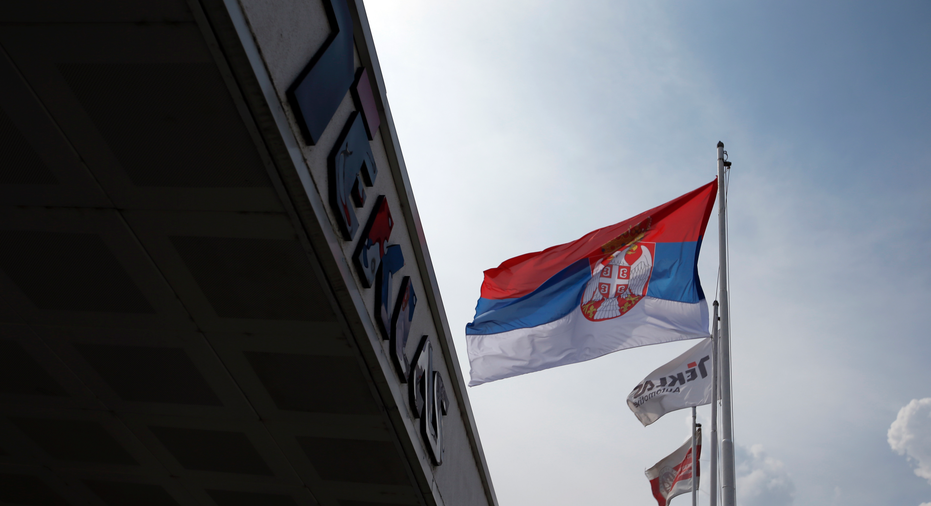Turkey's crisis could slow its push for influence in Balkans

VLADICIN HAN, Serbia – In the south of Serbia, a Turkish car parts company has been hailed as a savior: its new plant created hundreds of jobs and breathed new life into a region that has long been underdeveloped and was devastated in the 1990s' wars.
But with the dramatic plunge in the value of the Turkish currency this year as a result of investor concerns and a diplomatic dispute with the U.S., there are worries in Serbia and the rest of the Western Balkans that such investments from Turkey may dry up.
Analysts say that the country's financial turmoil may slow future Turkish investments in Serbia, Bosnia, Macedonia, Albania and Kosovo, where Ankara is vying for influence, both economic and political, together with the European Union, China and Russia.
"We are worried, the crisis in Turkey cannot be without repercussions for us," Serbian Trade Minister Rasim Ljajic said recently as the Turkish lira fell.
Trade between the Western Balkans and Turkey has grown from $430 million in 2002 to $3 billion in 2016, with Serbia accounting for nearly one third. Turkey is now among the top 10 trading partners for Serbia and top three for Kosovo.
Western European leaders worry about the expanding authoritarian influence of Turkish President Recept Tayyip Erdogan and are concerned that he may gain influence in the Balkans. The Western Balkan countries formally want to join the EU but their applications have virtually been put on hold because of the EU's internal problems like Brexit, and that has exposed the Balkans to additional economic and political influence from Turkey, China and Russia.
The Balkans had been under Ottoman occupation for 500 years, meaning there are also cultural ties — for example, in Bosnia's and Kosovo's Muslim heritage— that have helped Turkey gain a presence.
Some think that the Western Balkans are significant enough geopolitically for Erdogan that Turkey will try to retain its existing investments and trade.
Aleksandar Medjedovic, a board member of the Turkish-Serbian Business Council, says Turkey will likely maintain planned investments but that they may be delayed.
"Fluctuations in the domestic currency rates always have an impact on the economy and they do impact on Turkish economy at the moment," said Medjedovic. But, he added, the "Balkans is a strategic area for Turkish investors."
In the Muslim-dominated Bosnia, Turkish investments are so far modest, but its political influence has risen since the bloody war there in the 1990s. Turkish aid groups have been rebuilding bridges and old Ottoman mosques and financing education. They have provided some 300 million euros for non-profit projects in Bosnia.
Demonstrating the extent of Erdogan's political influence in Bosnia, the Turkish president held a pre-election rally in May in the Bosnian capital, Sarajevo, after similar gatherings were banned in Germany and Austria.
While Turkey is not a major investor in Bosnia, Ankara last year pledged 3 billion euros ($3.5 billion) in financing for the construction of a highway between Sarajevo and Belgrade, and officials expect that project to go ahead.
Medjedovic said Turkey sees the Balkans, particularly Serbia and EU member Croatia, primarily as a "gateway" for its goods to the European Union.
So while there are questions about new investments, that may bode well for existing ones, like the spare parts factory in Vladicin Han, a small, drab-looking Serbian town of some 20,000 people where unemployment is rife. It produces mainly rubber parts for cooling and heating systems for clients such as Volkswagen, Skoda, Audi or Porsche.
The plant's Turkish manager, Fikret Aynibal, said that parent company Teklas Automotive has not taken any decision yet to stop investing in Serbia and the wider region because investment plans are based on five to ten years. If anything, Aynibal said, the company might invest more as turmoil reins at home.
"We are thinking to expand also in the Serbian region."
____
Sabina Niksic contributed from Sarajevo, Bosnia.



















